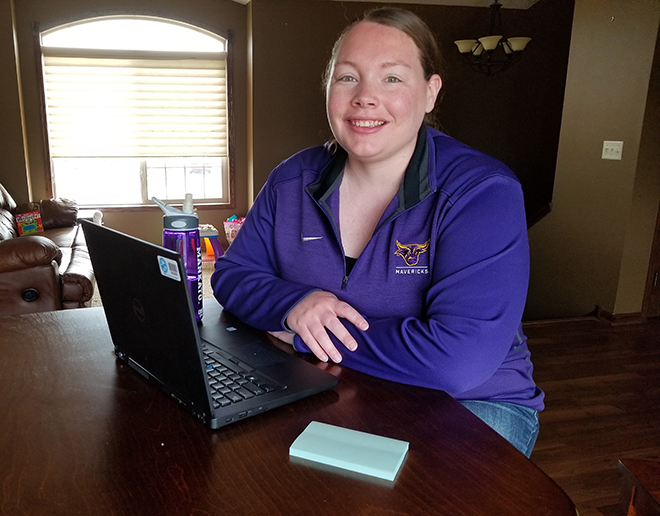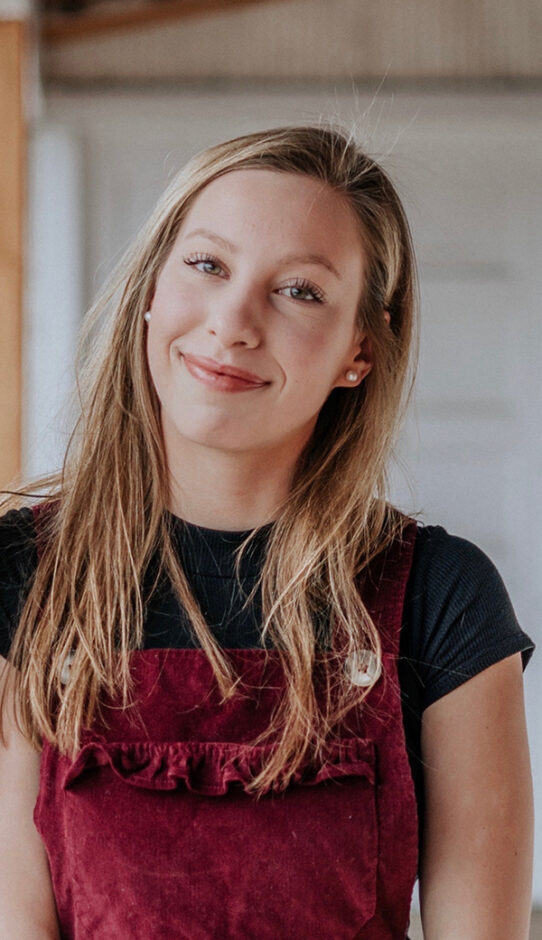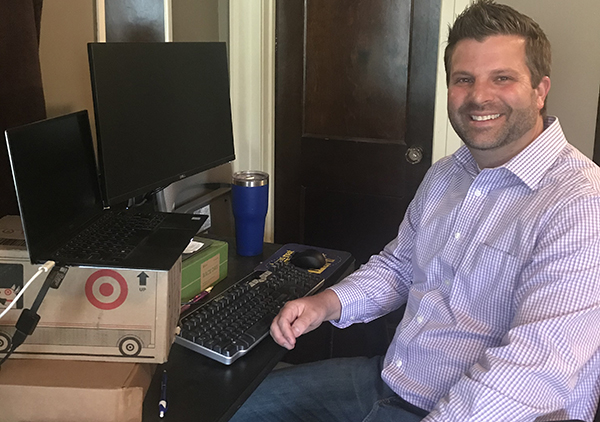Owatonna resident Carlie Berg had enough going on during her spring semester.
In her third year of an online business degree, she was taking 16 credits. She and her husband took care of their kids, 3 and 4, and Berg was getting adjusted to working at home, putting in 60 hours a week for an insurance firm.
When spring break was expanded she had questions about expectations and deadlines in in one class, questions that weren’t getting answered. And when she received a check-in call from the University, she explained her situation to the caller, who promised a follow-up.
“I honestly didn’t expect to get a [return] call from anyone,” Berg said.
The following day, she heard from Amy Staloch, Director of Student Success Communications and Systems, who listened to Berg’s situation, then contacted the instructor in charge.
“She got in touch with the teacher and my advisor,” Berg said. “Thankfully I got an extension from the teacher and then I just … kind of plowed through that and ended up finishing the class. But she [Staloch] was really, really helpful and just very supportive. Honestly, if it wouldn’t have been for her I probably just would have dropped out of the class or taken an F, which is way out of my normal. I’m usually almost a 4.0 student.”
THE OUTREACH
Berg’s call was one of thousands made by dozens of faculty and staff to ensure students knew they were being thought about at a time when everybody seemed to have too much to handle.
It was a measure undertaken by the Office of Student Success, led by Lynn Akey. Once it was determined that spring semester would be extended and classrooms would be vacated, Student Success decided it would be vital to contact students and check in.

“We want to just offer some general support, demonstrate care, demonstrate support for them as they’re transitioning and then acknowledging that as a campus, we’re still here,” Staloch said.
“Our primary message for these students was: We care. How are YOU doing,” she said.
It’s a similar message to new incoming students, with the University’s admissions staff embarking on answering questions from curious, sometimes anxious students. Like graduating high school senior Ainslee Hemmen.

Hemmen is the type of student who asks questions. Lots of them. A graduating senior of Rapid City (S.D.) Central High School, she chose to attend the University after visiting twice.
“I just really fell in love with it,” she said. “They have a lot of great resources, which kind of got me hooked and they have advisors on advisors on advisors. You can always get your questions answered.”
When the pandemic hit and the University operations dramatically shifted, Hemmen said her questions ramped up. First about orientation, then about her pre-med track.
“So it stressed me out a little because now I can’t talk to someone in person about this, like how am I going to get my questions answered?” She had by this point already felt a connection with the admissions team, which remains in touch with her.
“I get weekly emails from my admissions person,” she said, “weekly emails from them about what’s going on with the university and who I can call if I have more questions.”
She’s used the option frequently.
“I usually called the [admissions] office, and then they connect me to department heads in the pre-med department, or a biochemistry person. It’s all inter-connected and they know good people to talk to who know their stuff and who help you out.”
Hemmen never had to wait long for her questions to get answered quickly, she said.
“Besides having to wait until a regular business day to get my questions answered, I could call whenever and get my questions answered immediately.”
Hemmen’s experience is the one that Brian Jones works to replicate as he works toward recruiting to the university at a time of national uncertainty about everything, from the family to the fate of the nation.
When you find yourself recruiting in a pandemic, you deal with it directly.
The message to prospective students: “We know this is weird, it’s weird for us, too,” Jones said. “But we’re giving them updates on how the campus is reacting in real time and giving the opportunity for them to ask questions.”
“We’ve really been focusing on projecting how the university is caring for our current students, how our university is responding to a public health crisis and doing right by our students first.”

On-campus visits are a missed opportunity, although two years ago admissions invested in a virtual tour of the campus through a company called UVisit.
Further, admissions staff are talking with prospective students via the Zoom meeting platform and PowerPoint links to everything from housing to inspirational Maverick videos for use in those conversations.
“So there’s one person presenting, and one person responding to questions in chat.”
Jones said Admissions took steps to ease anxieities in a number of ways, including eliminating a May 1 deadline on enrollment decisions and not requiring SAT or ACT testing from incoming freshmen.
“So students who weren’t able to take that ACT test they planned on taking in April, we’ll consider them for admission based on their school transcripts” Jones said.
The personal calls made to students revealed a lot about them as well as how she views her job, Staloch said.
“Our professional roles aren’t going to be the same over the next few months, and I honestly don’t know if they’ll be the same going forward,” she said. “We’re getting a new perspective of where our students are at in their development, but also just in their day-to-day identities and their lives. We’ve got a lot of students going through a lot of transitions.”
“I think as a campus, as a department, as a division, as a person, I’m going to look at how our students are coping in a holistic sense even more as we move forward.”
Speak Your Mind